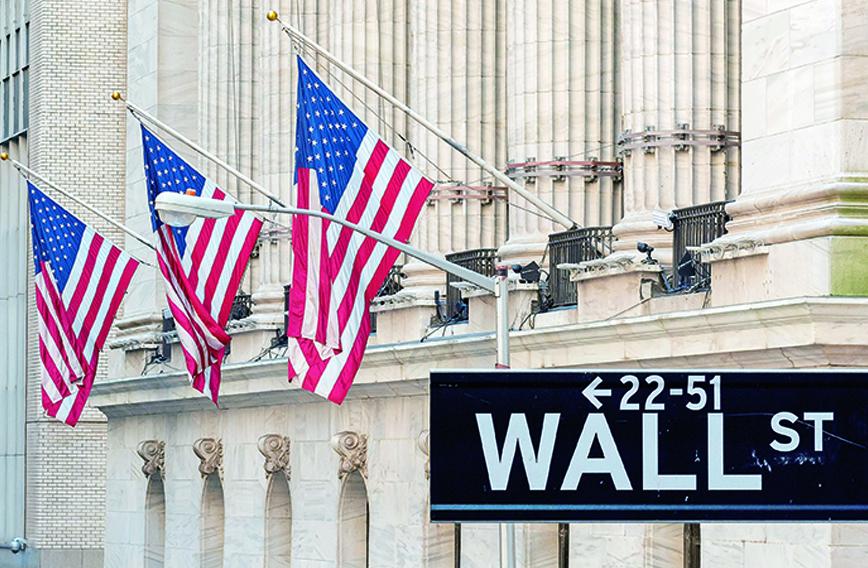

ARUN MAIRA
THE Covid pandemic which struck in February 2020 shattered the livelihoods of billions around the world and hundreds of thousands of lives were lost in the first year. In that year stock markets around the world reached record highs. Stock markets seem to thrive on human misery.
The war in Ukraine carries on, with no end in sight. Members of the North Atlantic Treaty Organization (NATO) have rallied to give military assistance to the Ukraine government, and hundreds of billions of dollars of arms have been supplied already. While the lives of citizens in Ukraine are grinding along painfully, the stocks of US defence companies have soared, beating the overall stock market. The US Congress has passed a bill allowing the President to give many billions more of defence assistance to Israel provided he cuts social security support for needy US citizens. This is a good time to invest in US defence companies.
Investors have rights in the economy. Humans have fundamental rights in any society. Human rights struggled against property rights in the 20th century. Legally, investors won. By the end of the century, with a surge in economic globalization, investors had acquired rights to sue governments of countries in international tribunals. Thereby, wealthy investors living luxuriously in one country can claim compensation from the government of a poor country for harm to their financial wealth by actions taken by that government to protect the interests of its own citizens.
Governments are formed in countries, whether they are elected or not, to protect the interests of their citizens. The UN Charter created in 1945 guarantees the sovereign rights of all governments within their boundaries. However, capitalist corporations, owned by investors, seem to have acquired higher legal rights in the global economy than countries’ governments. There is conflict between the legal rights of governments and the legal rights of limited liability corporations operating across national borders. It is an ideological conflict between the right to own property and trade freely, on the one hand, and on the other, citizens’ rights for representation in the governance of their own lives. Its origins lie in the creation of corporations for promoting the rights of their investors with limited liability for other consequences. The first of these was the East India Company.
The East India Company (EIC) was an English joint stock company founded in 1600. At its peak, the company was the largest corporation in the world by various measures. The EIC had its own armed forces in the form of the company’s three presidency armies totalling about 260,000 soldiers, twice the size of the British Army at the time. The operations of the company had a profound effect on the global balance of trade, almost single-handedly reversing the eastward drain of Western bullion, in effect since Roman times. The governors of the Company met in London, their only responsibility was to ensure that accounts of the profits generated were accurate and that the profits were equitably shared amongst its investors. They were hardly aware of, and were not responsible for, the marauding by the company’s officers and armies in India, China, and other Asian countries.
The East India Company was nationalized by the British Crown, but its template has persisted in the designs of 21st-century capitalist corporations. In the 19th century, the anti-slavery and broader labour rights movements curbed the rights of investors over the human rights of workers. In the 21st century, the conflict has shifted to the rights of citizens over data about their lives, and the indigenous knowledge of their communities, from being converted into resources legally owned by companies for the benefit of their investors.
At the turn of the millennium, the mantra that the “business of business must be only business” had taken over economics and public policy around the world. “Ease of doing business” became the measure of a government’s performance, with governments ranked by the World Bank and progress of “deregulation” of business rewarded. The “ease of living” of common citizens, especially those at the bottom of the economic pyramid, became secondary. The theory was that wealth would trickle down. However, wealth has been gushing upwards. Inequalities in monetary wealth have increased obscenely. The richest persons in the world have billions of dollars in their accounts, while the poorest have none. The poorest find it impossible to cross borders, stuffed in boats and trucks, seeking better opportunities for their families, while the money of the rich is given more freedom to flow across borders to make even more money for them.
The economists’ mantra driving globalization is “One Economy, One Earth, One Future”. India promoted an alternative paradigm at the G20 meet in 2023: “One Family, One Earth, One Future” (Vasudhaiva Kutumbakam). India’s prime minister appealed for “a shift away from a GDP-centric view of the world to a human-centric world”. Sadly, at the same time, his government is touting its own drive to grow India’s GDP by trillions of dollars as proof of the country’s development.
An economy is composed of consumers, producers, traders, and investors. They transact amongst themselves using the currency of money. A family is composed of human beings who use their different capabilities to give to one another according to their different needs. They do not need to track and record the values of their interactions in money terms. In an economy, transactions amongst its participants must be recorded in a standard, numerically measurable, currency so that their economic value can be computed and added to the GDP. Caring for other human beings has no value in the economy unless it is done for monetary compensation. The “work” that humans do in families and communities to support one another, much of it by mothers and women, is of no value in the economy. Therefore, caregivers must be plucked out of their “informal” family and community organizations to work in “formal” economic organizations. Care in their own families is neglected, and commercial organizations are formed to provide it. This contributes to the growth of the formal economy and GDP; but does not create a more human-centric world which families are designed to create.
Economic growth driven by capitalist extremism is harming ‘People and the Planet’. Nature and human beings are not resources to be converted into financial capital. The needs of human beings and respect for Nature must become the driving principles for progress and growth. This requires a new science of economics for the 21st century, the principles for which lie in the organization of families and communities.
Arun Maira is the author of ‘Shaping the Future: How to Be, Think, and Act in the New World,’ published in October 2023
Comments
-

Kanha - Dec. 14, 2023, 10:37 a.m.
A human-centric economy really is what we could do with right now. This is wonderfully written and so lucidly explained that even someone like me who has a mere sketchy understanding of economics, could fully grasp what is being said.



